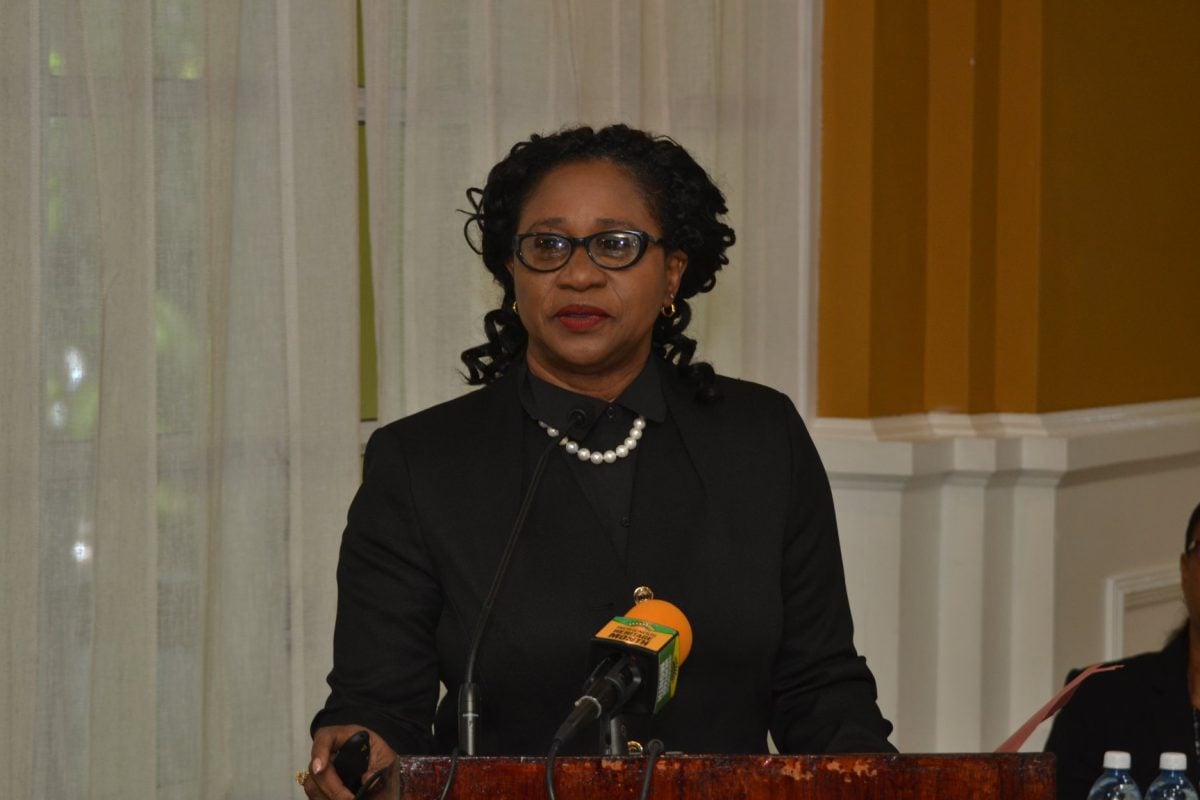In the wake of the COVID-19 pandemic, human traffickers have found various means to continue their trade and avoid detection by the police.
This was one of the points made at Friday’s observance of World Day against Trafficking in Persons (TIP) when the Guyana Association of Women Judges (GAWJ) in collaboration with the Justice Education Institute (JEI) held a webinar which sought to highlight the efforts being made by stakeholders to arrest the scourge.
Highlighting the role of the Guyana Police Force in TIP, Sergeant Ranatha McBean said that while the most important aspect for the Force in dealing with the crime in Guyana is to prevent it in the first place—this is not the reality—and is why law enforcement officers are tasked to ensure justice for victims. Presenting a background to the situation in Guyana, Sergeant McBean said investigators have over the years encountered different victims with a variety of challenges—with most of those challenges she said, involving victims from Venezuela and hinterland locations as “they are more vulnerable to this crime because of lack of education among other factors.”
She said that most victims from Venezuela or the indigenous communities are usually not registered when entering Guyana after birth or have any form of identification, which makes it difficult to prove their age.
McBean said, too, that language barrier poses another challenge as the indigenous people of Guyana speak various languages, while the influx of foreign nationals who speak mostly Spanish makes it difficult to communicate/build rapport with victims.
The Sergeant noted that each country experiences different challenges but outlined to the virtual gathering that in Guyana the pandemic in particular has greatly hindered the work of the Force in combating TIP.
For one, she said that because of the pandemic bar owners in particular have adopted other methods of perpetrating the crime making it harder to detect via surprise inspections. Some methods used by traffickers she said, are, advertisement via social media, private locations for parties, escort services and even victims being delivered to the homes of clients.
McBean said that despite the efforts of the Government through the Ministerial Task Force, TIP and its attendant problems persist, but she said that the Force remains committed to one day eliminating the crime.
The day’s proceedings which lasted just under five hours, saw a number of presentations from members of the judiciary, magistracy, and the Guyana Police Force among others.
Providing in her presentation an overview of TIP, acting Chancellor of the Judiciary, Yonette Cummings-Edwards underscored what she said was the widely accepted belief that poverty and unemployment were some of the reasons for the existence of TIP. Observed this year under the theme “Victims Voices Lead the way,” the chancellor said it emphasizes the importance of survivors, the role they play in combating the crime and the value of their voices in fighting trafficking. Often described as “modern day slavery,” Chancellor Cummings-Edwards underscored the importance of survivors’ voices being placed “at the heart of the anti-slavery movement” and why it is therefore imperative that strategies are formulated to reflect what is revealed by survivors.
Without this, she said that there is the risk of creating law and policy in abstract which would not meet the aims of prevention, protection and prosecution. It is against this background she noted that Guyana in 2005, enacted the Combating of Trafficking in Persons Act Cap. 10:06 which she says reflects a victim-centred approach and a survivor-centric legislation.
This piece of legislation the chancellor noted, criminalizes human trafficking and covers a wide range of other offences including attempts to commit a trafficking offence, secondary participation as an accomplice, organizing or directing others to commit trafficking and unlawfully withholding identification documents.
She said that the Act is also bolstered by Article 140 of the Constitution which prohibits a person being held in slavery or servitude or being required to perform forced labour. In addition, she said that Guyana has also acceded to a number of International Conventions to prevent, suppress and punish human trafficking.
To combat TIP, and all its attendant forms of exploitation, the chancellor said that the collaborative effort of all stakeholders is needed; even as she noted challenges posed by the Covid-19 pandemic and even climate change.
She also noted the internet and social media through which more victims are being recruited as all challenges hindering the collaborative effort at combating TIP.
Meanwhile, underscoring some of the prosecutorial challenges faced by the State, Assistant Director of Public Prosecutions, Diana Kaulesar-O’Brien said they include among other things, victims’ distrust of law enforcement, prosecutors and the judicial system; victims’ fear of reprisal by traffickers; inability to guarantee safety of victims and relatives and reluctance of victims to testify in court.
She said that the work of the Chambers is also often hindered by incomplete police investigations, corroboration of victims being difficult to obtain, victims being treated as the only source of evidence, constraints surrounding geographical location, victim dissatisfaction with care facilities and victims not identifying as victims.
Notwithstanding the myriad challenges, however, she said that the office of the DPP remains committed to working with all stakeholders to arrest the issue of TIP.






